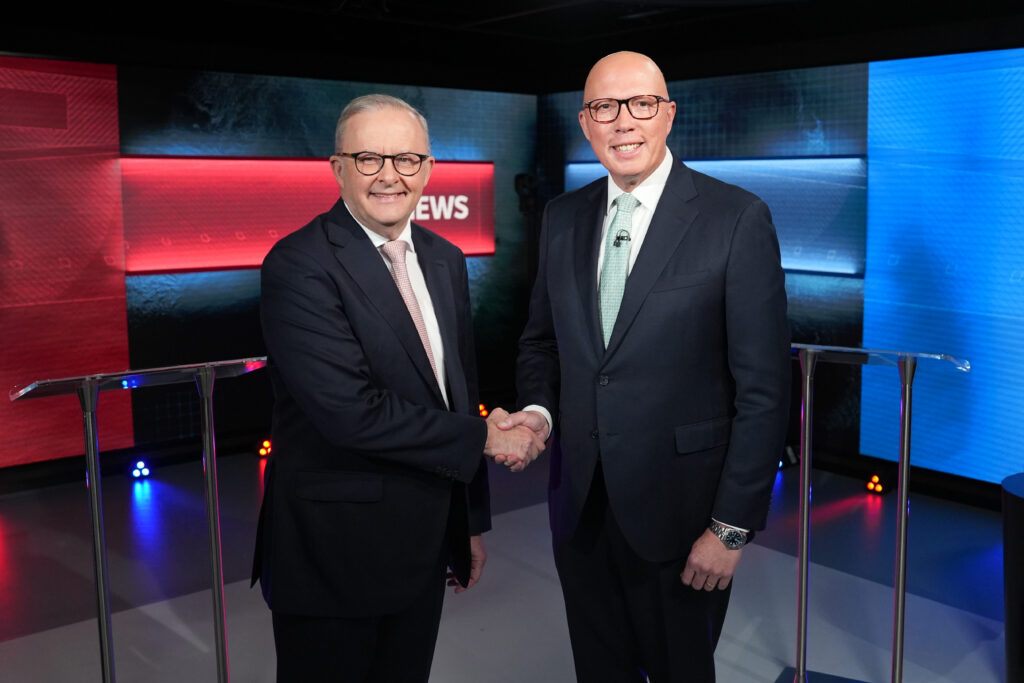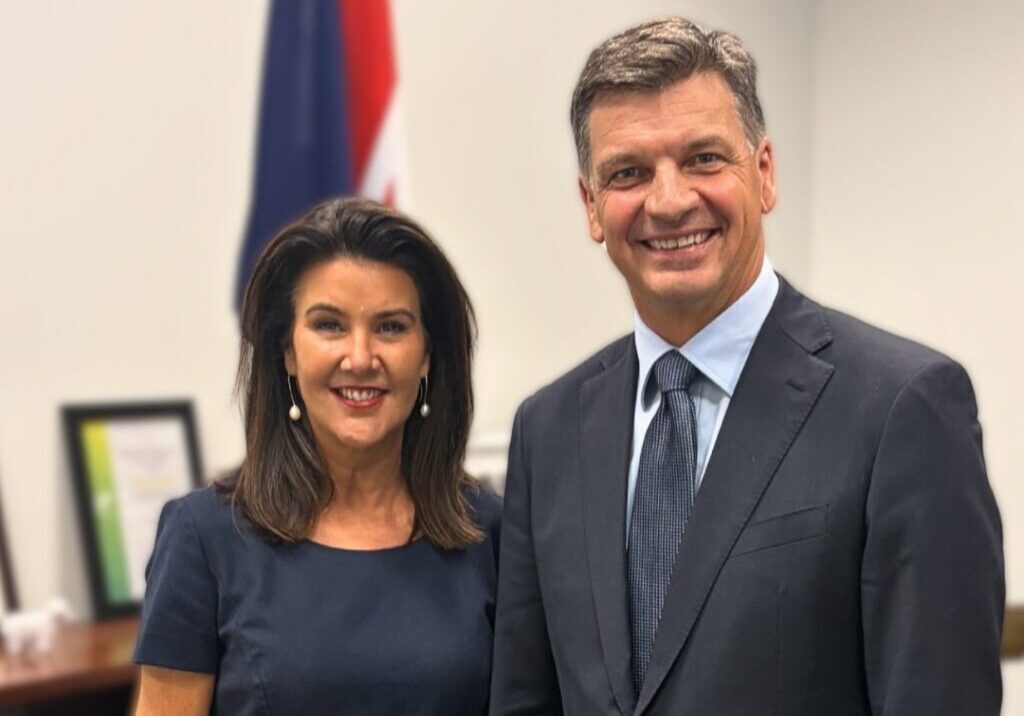Australia/Israel Review, Featured
Editorial: After three momentous years
Apr 24, 2025 | Colin Rubenstein

Given all that has happened recently – especially with regards to Israel, the Australian Jewish community and the Federal Government’s policies regarding both – it’s hard to believe that it has been just under three years since the last Federal election.
A surge in domestic antisemitism kicked off here barely one day after Hamas’ surprise mass terror attack on Israel on October 7, 2023, with the notorious antisemitic demonstration at the Sydney Opera House. Acts of anti-Jewish hate soon soared to levels never before seen on our shores, in the streets and on our university campuses, culminating in the torching of Melbourne’s Adass Israel Synagogue with some congregants inside, a horrific event that miraculously did not lead to loss of life. Then criminal gangs began paying people to carry out attacks to increase the Jewish sense of vulnerability for their own purposes.
Meanwhile Israel’s seven-front defensive war against not only Hamas, but Hezbollah and all of Iran’s regional proxies, as well as attacks from Iran itself, is still unresolved. We remain in the midst of history-making events with profound implications for the future.
And so, following a decades-old pre-election tradition, the Australia/Israel Review has once again turned to Labor and the Coalition to ask them some of the questions weighing on the minds of most members of the Australian Jewish community. Hopefully, many of these same questions will also be of interest to all Australians who both appreciate the Australia-Israel relationship and understand that the fight against antisemitism is a fight for Australian democratic values, social cohesion and national security, all of which serve every Australian.
Three years ago, I wrote that regardless of whether the parties of the Prime Minister or Opposition Leader came out ahead, a sea change in Australia’s historic, mutually-beneficial and close relationship with Israel was not on the ballot.
Many would argue that this is no longer the case. The shocking events of October 7 put the Albanese Government’s commitment to Israel and the Jewish community to a stress test that most members of our community would agree it has not always passed. Certainly, on these pages and in the Australian media, I and other AIJAC analysts have felt compelled to criticise the Government’s judgment on a variety of issues and policies. This is a matter of record, so I will not repeat those criticisms here.
However, given this context, a comparison of the answers to AIJAC’s questions before the last election and this election seems particularly important and enlightening.
While the Coalition provided detailed responses to each of our questions before both polls, this time around, the ALP chose to reply with a letter laying out the current Government’s responses to only select issues raised in our questionnaire. In a sense, Labor’s decision to deliver a missive instead of answering the questions directly itself raises some questions.
In any event, while there is significant bipartisan overlap on several issues, a comparison of the answers reveals a widening gulf between the positions of the major parties on both the Australia-Israel relationship and Australian Jewish affairs compared to 2022.
Both the ALP and Coalition campaigns recognise the need for government action to assist the Jewish community to protect itself against security threats and address the unprecedented levels of antisemitism and hate crimes, and both promise substantial financial support to aid the Jewish community.
Yet noticeable differences exist. The Coalition seems to be emphasising law-enforcement measures to counter the antisemitism problem, including a new police task force and efforts to revoke the visas of immigrants involved in antisemitic acts, while Labor’s messaging focuses on safety, inclusion and using the tools of government to legislate against hate.
Regarding the dire situation on Australian campuses, Labor points to the Parliamentary inquiry it initiated as a major step – saying it’s the most comprehensive response yet. The Liberals compellingly say it’s not enough, and pledge a full judicial inquiry into antisemitism at universities with legal powers beyond making recommendations.
Both major parties promise to increase trade and investment ties with Israel, preserve our historic relationship and continue the long-standing bipartisan support for a two-state resolution.
Yet, in some respects, the general policies can sound very similar yet be quite far apart in terms of both detail and tone.
For example, while the Coalition has promised to support Israel at the UN, the ALP says it will support resolutions that bolster a two-state solution. While that may sound reasonable, it elides the fact that most of the UN’s annual slate of viciously one-sided anti-Israel resolutions pay nominal lip service to a two-state solution, even as they undermine this goal in practice.
And perhaps most glaringly, the ALP has doubled down on its wrong-headed in-principle support for recognising a Palestinian state before a peace agreement is directly negotiated between Israel and the Palestinians. This is a disastrous proposal, effectively rewarding terrorism, that would see Australia help undermine any incentive the Palestinians have to negotiate a genuine end to their conflict with Israel.
The contrast between the parties is also clear on the vital international security issue of Iran and its rapidly ripening nuclear program. The Coalition offered a strong answer to our policy question on this subject. The ALP chose not to address it at all.
An additional complexity in this election is that, continuing a long-term trend away from the major parties, polls indicate the next government will in all likelihood have to rely on support from independents, especially the Teals who were so successful in 2022, and have a mixed record on Jewish concerns, depending on the candidate.
This will also be the first Federal election for the Greens Party since it abandoned the two-state peace paradigm in favour of near-blanket support for Palestinian demands and claims. This move toward extremism, which began in June 2023, only accelerated after October 7, with Foreign Minister Senator Penny Wong tellingly calling out the Greens for “collaborating” in some of the criminal activity associated with the anti-Israel protests. Plus, their major response to the antisemitism crisis has been to act as if almost all Jewish fears about antisemitism are simply a smokescreen to shield Israel from criticism.
It would be fair to say that, for most Australian Jews, a minority government dependent on the Greens would be a worst-case, chilling outcome to this election.
On May 3, Australia will render a verdict. We greatly hope AIJAC’s questionnaire will help ensure the choice voters make is an informed one.






